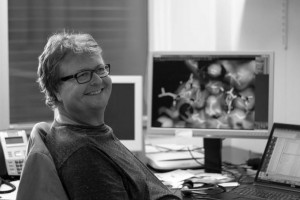Besides the most promising young researchers in the field of chemical and related sciences, Cutting Edge 2015 will also be hosting one invited prominent scientist per section with a lecture about their outstanding work.
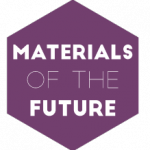 The application of metal oxide nanoparticles in gas sensing devices and lithium ion batteries
The application of metal oxide nanoparticles in gas sensing devices and lithium ion batteries
doc. dr. Igor Đerđ, Ruđer Bošković Institute, Zagreb
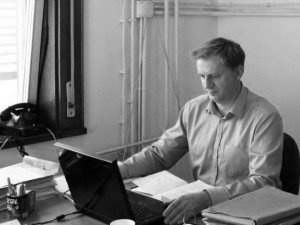 Igor Djerdj (born in Osijek on August 23., 1972) studied physics at the University of Zagreb, Croatia where he also received his Ph.D. degree in 2003. He completed his first postdoctoral study at the Max Planck Institute of Colloids and Interfaces in Potsdam, Germany. Afterwards he moved to the Swiss Federal Institute of Technology (ETHZ), Zürich, Switzerland where he did his second postdoc. Since 2009 he has been a Scientific Associate at the Ruđer Bošković Institute, Zagreb, Croatia, while 2015 he has been promoted to Senior Scientific Associate at the same affiliation. His research interests include the structural characterization of a variety of functional materials with targeted applications, theoretical modelling of the electronic structure, liquid-phase synthesis of novel materials particularly inorganic–organic hybrids, diluted magnetic semiconductors, magnetic nanoparticles, battery, multiferroic and gas-sensing materials. He co-authored 70 research articles in WoS indexed journals, which obtained 1637 citations (H=23).
Igor Djerdj (born in Osijek on August 23., 1972) studied physics at the University of Zagreb, Croatia where he also received his Ph.D. degree in 2003. He completed his first postdoctoral study at the Max Planck Institute of Colloids and Interfaces in Potsdam, Germany. Afterwards he moved to the Swiss Federal Institute of Technology (ETHZ), Zürich, Switzerland where he did his second postdoc. Since 2009 he has been a Scientific Associate at the Ruđer Bošković Institute, Zagreb, Croatia, while 2015 he has been promoted to Senior Scientific Associate at the same affiliation. His research interests include the structural characterization of a variety of functional materials with targeted applications, theoretical modelling of the electronic structure, liquid-phase synthesis of novel materials particularly inorganic–organic hybrids, diluted magnetic semiconductors, magnetic nanoparticles, battery, multiferroic and gas-sensing materials. He co-authored 70 research articles in WoS indexed journals, which obtained 1637 citations (H=23).
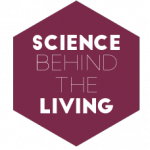 Applied MCR Chemistry, drug design
Applied MCR Chemistry, drug design
prof. dr. Alexander Dömling, University of Groningen
The Dömling laboratory has a focus on MCR chemistry since >20 years, in industry as well as in academia. In this lecture recent developments in applied MCR chemistry will be discussed. 1) Novel small molecular weight scaffolds based on IMCR and MCR for the high throughput synthesis of compound libraries in the frame of the US-based ROADMAP as well as the European Innovative Medicine Initiative – European Lead Factory (IMI-ELF); 2) the creation of a very large billions size virtual library based on MCR scaffolds and the associated free web-based pharmacophore software ANCHOR.QUERY; 3) the application of MCR chemistry to discover novel potent and selective protein-protein interaction antagonists exemplified with p53-mdm2 and the PIF pocket of PDK1; 4) the use of MCR chemistry for the design and synthesis of novel macrocyclic compounds for use in magnetic resonance imaging; 5) the introduction of novel isocyanides which can be cleaved under mild conditions or functionalized to novel heterocyclic compounds; 6) a GOOGLE-MAP based approach to a spacio-temporal survey of the world of MCR.
Alexander Dömling studied Chemistry & Biology at the Technische Universität München and performed his PhD with Ivar Ugi and his postdoc with Barry Sharpless. He is the founder of several biotech companies. He is interested in novel aspects of and the application of MCR chemistry for the discovery of novel drugs in areas of unmet medical needs. He was professor at the University of Pittburgh and since 2011 he is Chair of the Department of Drug Design and professor at the University of Groningen.
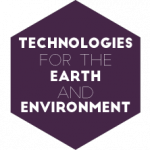 The influence of operating conditions on Advanced Oxidation Processes efficiency in water and wastewater treatment
The influence of operating conditions on Advanced Oxidation Processes efficiency in water and wastewater treatment
prof. UG, dr hab Ewa Maria Siedlecka, University of Gdansk
Advanced oxidation processes (AOPs) are technologies based on the intermediacy of hydroxyl and other radicals to oxidize recalcitrant, toxic and non-biodegradable compounds to various by-products and eventually to inert end-products. The influence of main factors: pH of solution, wastewater and water composition, catalyst loading, pollutant concentration, type of irradiation, current efficiency etc. on selected pollutants efficiency removal (pharmaceuticals, pesticides, dyes) by different AOPs will be discussed.
Ph.D. (199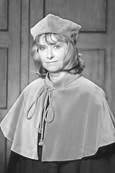 4) in Peptides Chemistry (University of Gdańsk, Poland), D.Sc. (habilitation 2011) in Environmental Chemistry. Associated professor at Chair of Environmental Engineering, Faculty ofChemistry, University of Gdańsk, Poland. Author and co-author of more than 70 original papers, 2 book chapters. Main scientific interest: chemical, photochemical and electrochemical advanced oxidation processes, kinetics and mechanistic study, identification of intermediates, the fate of toxic and poor biodegradable pollutants in water, direct photolysis of pharmaceuticals in environment, preparation of new photocatalysts and surface modification of boron doped diamond electrodes.
4) in Peptides Chemistry (University of Gdańsk, Poland), D.Sc. (habilitation 2011) in Environmental Chemistry. Associated professor at Chair of Environmental Engineering, Faculty ofChemistry, University of Gdańsk, Poland. Author and co-author of more than 70 original papers, 2 book chapters. Main scientific interest: chemical, photochemical and electrochemical advanced oxidation processes, kinetics and mechanistic study, identification of intermediates, the fate of toxic and poor biodegradable pollutants in water, direct photolysis of pharmaceuticals in environment, preparation of new photocatalysts and surface modification of boron doped diamond electrodes.

